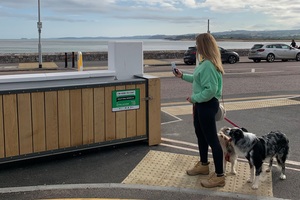Russia: UK-US joint statement on first anniversary of poisoning of Alexey Navalny
News story
The UK and US have issued a joint statement on the first anniversary of the poisoning of Alexey Navalny.

One year on from Mr Alexey Navalny’s poisoning on 20 August 2020, the United Kingdom and the United States of America reaffirm our condemnation of the assassination attempt on Mr. Navalny through the use of a nerve-agent of the “Novichok” group, a substance developed by Russia.
We call on Russia to comply fully with the Chemical Weapons Convention (CWC), including its obligations to declare and dismantle its chemical weapons programme.
We remain determined to uphold the global norm against the use of chemical weapons, support the Organisation for the Prohibition of Chemical Weapons (OPCW) and the full implementation of the CWC. We regret that the Russian authorities have failed to investigate and credibly explain the use of a chemical weapon against Mr. Navalny on Russia’s territory, in light of Russia’s obligations as a State Party to the CWC.
We welcome sanctions actions made by international partners and will continue to coordinate with international partners on further measures. Today the UK and the US join in taking further action against the individuals directly responsible for carrying out the poisoning of Mr. Navalny. As we did after Russia’s use of a chemical weapon against the Skripals in the United Kingdom in March 2018, we continue to underline that there must be accountability and no impunity for those that use chemical weapons.
We reiterate our interest in stable and predictable relations with Russia, on the basis of full compliance with and implementation of international obligations and commitments.
Published 20 August 2021
